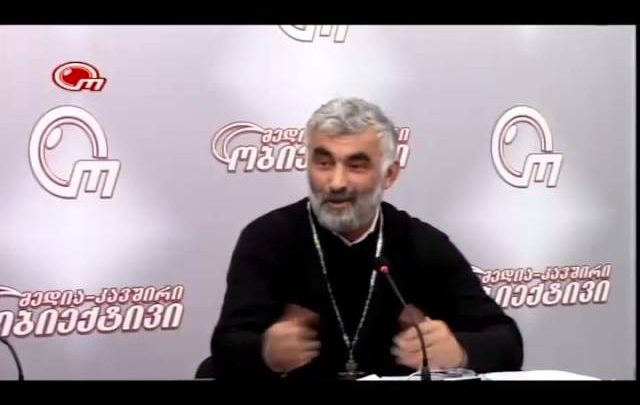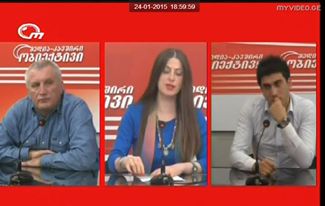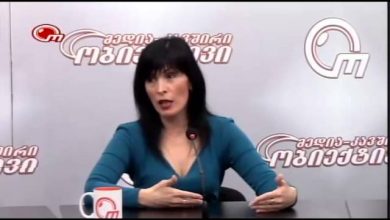კვირის დაიჯესტიპროექტები
Juvenile justice in Georgia

- ნახვები4307
- ლაიქები0
On 12 June 2015, the Parliament of Georgia adopted Georgia’s first Juvenile Justice Code in Georgia, developed by the Ministry of Justice with support from the HD-led EU-funded project Support to the Reform of the Criminal Justice System in Georgia and UNICEF.
The new Code — including a child victims and witness parts — brings the Georgian juvenile justice system into compliance with international standards. Thus far, children in conflict with the law have been treated as adults by the criminal justice system; special treatment, if any, was left at the discretion of the individual judges/prosecutors.
The Code sets the elements of modern legislation and justice system in the best interest of the child, including:
- overall rehabilitative and restorative approach
- provision of the most adequate response to a crime committed by a juvenile instead of application of retributive and repressive measures
- mandatory specialization of all practitioners involved in the administration of juvenile justice
- use of detention/imprisonment only as a measure of last resort and for the shortest appropriate period of time
- alternative measures and sentencing mechanisms
- priority given to restorative justice, diversion and mediation, and
- Child-friendly and individual approach for children in conflict with the law as well as child victims and witnesses of crime.
These approaches toward children in conflict with the law will be institutionally guaranteed and will be no longer conditioned on the goodwill and practices of the prosecution. The new Juvenile Justice Code will come into force in January 2016.
In this year Georgia’s Parliament approved the new Juvenile Justice Code of Georgia first time, which met a range of international standards for youth offenders. The main changes related to the youth offender’s criminal record and prison terms; specifically, life imprisonment for youth was now prohibited in Georgia.
Before the adaptation of new Juvenile Justice Code the children having problems with the law was convicted by the juvenile justice provision given in the blood justice and in the imprisonment code.
But now priority will be given to restorative justice, diversion and mediation, and child-friendly and individual approach for children in conflict with the law as well as child victims and witnesses of crime, rather than to the blood justice.
Use of detention/imprisonment only as a measure of last resort and for the shortest appropriate period of time, also, life imprisonment for youth was now prohibited in Georgia. In the case of heavy and especially heavy child crime the maximum imprisonment time period will be from 10 years to 15 years.
The implementation process will be the most important and challenging phase; furthermore, it has to guarantee the application of a child-friendly approach in practice. Building a common understanding of the principles of the Code, coupled with the active involvement of justice professionals and other professionals in the implementation process, will be essential. In particular, the implementation of the Code implies the following:
- development of secondary legislation, protocols and guidelines for specialized professionals;
- full specialization of justice professionals and further strengthening of the human and institutional capacity of the system;
- establishment of individual assessment mechanisms in courts and in other systems;
- proper monitoring of the implementation of the Juvenile Justice Code and the protection of children’s rights in the justice system in general.
Some elements of the restorative justice have already been successfully implemented as part of the diversion and mediation programme in Georgia. Since its introduction, the programme has managed to divert about 900 juveniles with a low rate of re-offending. This programme has demonstrated that the application of a rehabilitative approach and restorative justice can serve both the protection of the best interests of child offenders and public safety.
EU in partnership with UNICEF and through its technical assistance Project will continue supporting the implementation of the Code to further strengthen the human and institutional capacity of the justice for children system in Georgia.
The Convention on the Rights of the Child confirms that children in conflict with the law should be treated in a manner which is consistent with the promotion of a child’s sense of dignity and worth, which reinforces a child’s respect for human rights and fundamental freedoms of others, and which also takes into account a child’s age and promotes a child’s reintegration into society. Children differ from adults in their physical and psychological development, and in their emotional and educational needs. Such differences constitute the basis for lesser culpability of children in conflict with the law, and are the reasons for needing a separate juvenile justice system, legislation and policy.
The Use of mediation could be possible even after the case is introduced at the court. After the charge is presented before court imprisonment is reduced from 60 days to 40 days and juvenile defendant’s whole imprisonment time will be 6 month instead of 9 months as it comes for adults. The precondemnation will be cleared as soon as the juvenile will be set free but only if the juvenile still will be accuses in the fulfillment of crime again the previous imprisonment will be taken into account.
Thus the main goal of the code is to give the chance of starting new life after the imprisonment of juveniles and the chance of their reintegration. It’s prohibited according to t he law that the juvenile defendant and adults defendant can’t be settled not even in the same detention cell but even in the same detention institution.
The child’s convention defines that the individual till 18 years is to be considered as a child. The children’s rights convention also puts right to all states that the minimum age of the liability to be estimated.
Juvenile justice code still points out that the minimal age of law liability for juvenile is 14 year.
The some articles of the code spread those exemptions on the 18-21 years old youth , which are envisaged for 14-18 years old juveniles and especially for those for whom the court is the first case and have not had any problems and conflicts with law before, such exemption is for example meditation and also sent under the supervision and so on.
Working on the code started from the end of 204 year by the head of justice ministry in Georgia and UN child fund and by the support of the European Union. The opinions of the experts and NGO-s were taken into account.
The new Juvenile Justice Code will come into force in January 2016.
That articles which requires additional measurements will be implemented during the 2016 year and from the firth January of 2017 year.
“Today we have juvenile prisoners in the Avtchala settlement and as for the home imprisonment we don’t have separate establishment for this. Defendant juveniles are settled in the Gdlani establishment‘s separate department. Until this part is not settled it will be considered as the broke of this code and also international standard norms. The ministry of penitentiary already builds new establishment. So regarding the temporarily establishment the satiation is more difficult here and the system still requires preparing here, says the minster of justice in Georgia Tea Tsulukiani.
Maka Peradze , ( Ministry of Internal affairs , The head of projects ruling at the international relations) mentions that one of the main priority of MIA is a fight against the crime and obviously one of the main component is prevention of it and Mia implements its by its law enforcers and its spread on the every layer of population and especially on juveniles.
As she said Academy of Mia take measurements that appropriate stuff takes provincial measurements.
The Research shows that in many cases child makes crime and she /he doesn’t know anything about this that it’s the crime.
According to the Peradze Mia also collaborate swathe the ministry of Education . In the frame of the Law development program the new guide book “ law Culture “ has been issued and the inspector of the district and schoolteacher simultaneously reads them and teaches it to the children and juvenile get acquainted what rights do they have and how they can defend themselves sand law as well.
Though school teacher and also founder of the fund “ Ertoba “ Giorgi Daraselia who also attended the Tv program about the juvenile justice system in Georgia doesn’t agree the representative of Mia and says that the prevention is not only collaboration with ministry of education but : “ I think that confessors must be at schools and take part in this and thus it will be the best way of the crime prevention “.
Confessor Guram Otkhozoria ( Didi Digomi district Saint Nikoloz Church’s priest) thinks that the engagement of the church in this issues is very important theme.
“ Our and law defenceres approaches are different but it fulfils it each other. We must teach to child at the beginning their rights and their constitutional state. We must to teach are they just biological individuals or they also do have souls. the sin means that child lacks good education and warm. Also warm attitude from parents. Crime is the protest from their side. We also complex approaches at jails too. We must give to child that love which he she lacked and therefore was lead to a crime. thus to give them a chance to a good discussion, says priest Gurma Otkhozoria.
As for the stigma existing in the society which is pointed toward the guilty or toward those who already had their punishment priest says that Jesus Christ takes all person without making any difference between them no matter what kind of sin they have made and Jesus Christ “ those who hates a human hates me “.
We still need in such case love and love. Many of them has fear and stigma that after they take finish punishment what will be after it and even many of them hides their past because of this . This is must be necessarily overcome and we need intensive working toward the issue.
Grigol Gagnidze a Lawyer and right defender says that during the Saakasvili period justice reforms which was absolutely non -tolerant had a very difficult and negative track in the society.
Non Human punishment had a massive character and according to the situation back in 2010 y. There were about 240 Juveniles in the penitentiary system at jails. The number is the big amount for small country as Georgia.
And after the change of the government due to the large scale amnesty only 40 juvenile are now at jails of course it was great human act what had an obviously good result.
“It’s very important that the young person to return at home not embittered but re socialized”, says Gagnidze.
Though in spite of the new code as a journalist I found cases even now when juvenile c ours are not appropriately conducted and this is due to the law economical incomes of the parents so that for law social and economical status families it’s still difficult because they can’t hire private lawyers and they are e lying on the state hired lawyers who are not so much defending the juvenile , therefore I think the most important issue in Georgia what is still not settled is unemployment and law economical status of the most population , of course the new code gives some facilitation but I think before the number first problem is not settled its still difficult to feel yourself as a decent civilian .
By Rusa Gvazava




